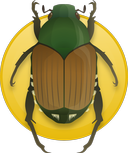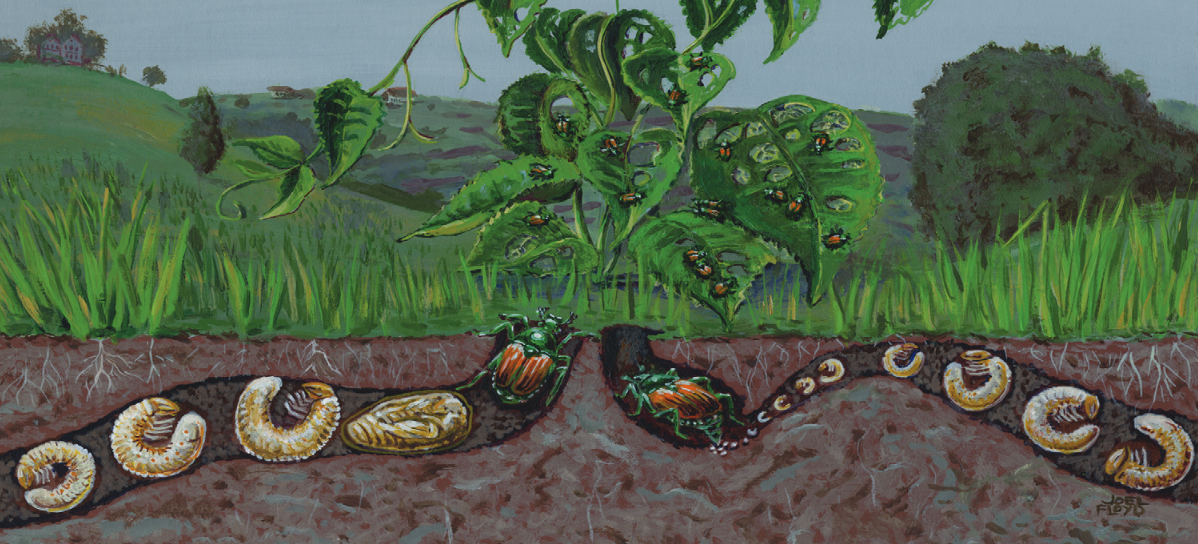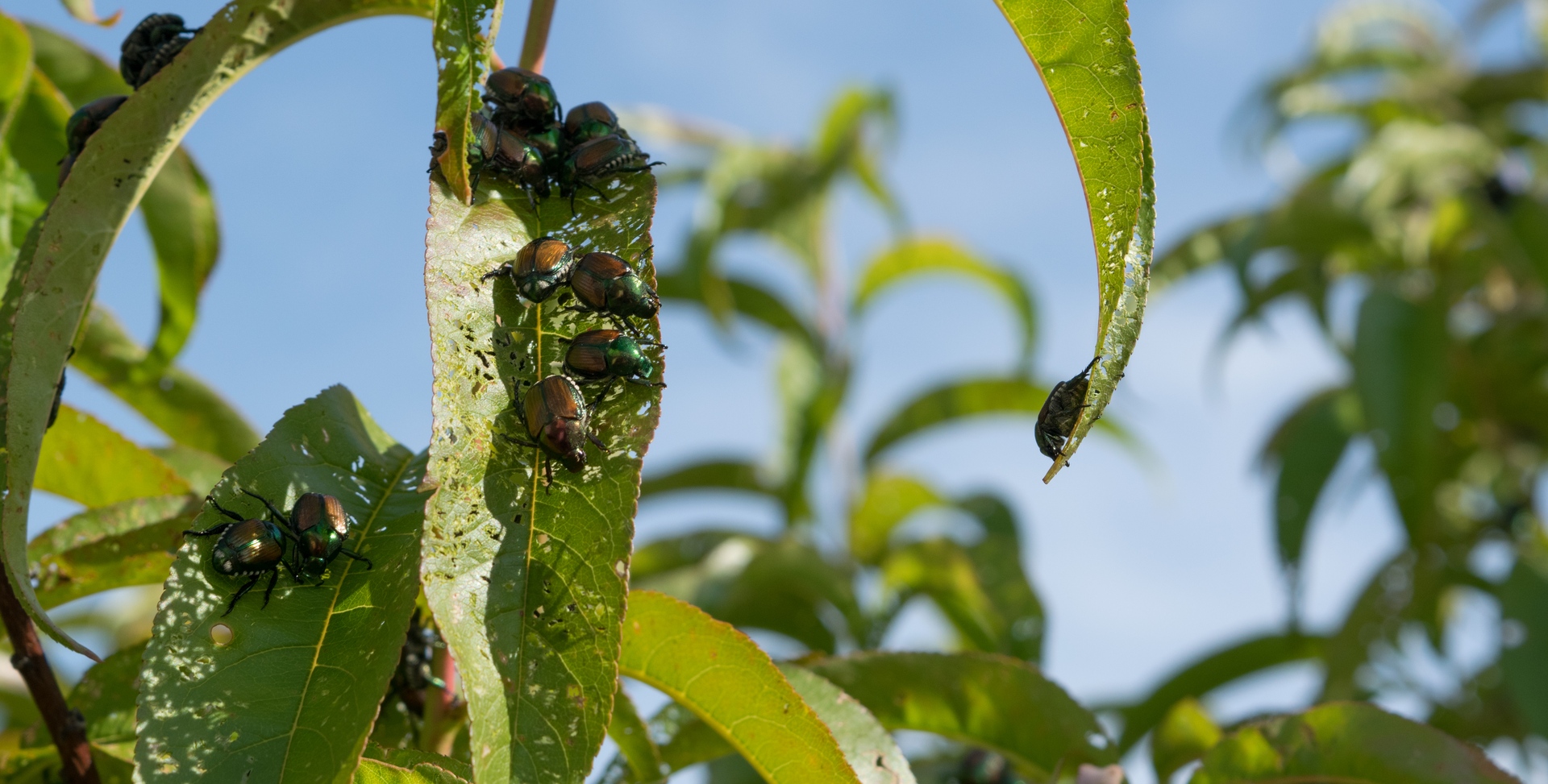
Collaborations
The IPM Popillia project is open for collaborations. We list here possibilities for data exchange, shared App usage and other forms of collaboration in the fields of invasive species, pest management, plant health and Citizen Science.
Is your institution interested in utilizing the IPM App in your country for monitoring and citizen engangement?
The IPM App stand ready for collaborations to enable both experts and the public to report on invasive species sightings.
Since invasive species like Popillia japonica fall under special attention on an EU-wide and international level, the need for exchanging data and sharing observations is a core element in the Citizen Science project. The IPM Popillia project gathers observational data with the help of citizens like farmers, gardeners, or the interested public. IPM Popillia is designed to be a project open for collaborations. We already offer options for an automated data exchange in external partnerships via API or RSS Endpoints. To extend the feasibility and scope of the project in the future, our development team of the SPOTTERON Citizen Science App platform is looking forward to working together with stakeholders and institutions to further expand on data sharing and notification possibilities.
Available connectors in the IPM Popillia project
API
An "application programming interface" or API is a connection between computer programs, allowing the direct exchange of data or integrating one service into another. For IPM Popilla, we can provide access to the Citizen Science App's API for external project partners to automatically fetch user-generated data points and their attributes, images, and GEO locations. External project partners can use the API to populate their databases with Citizen Science observations, apply filters, and develop custom applications connected to the IPM Popillia's public user-generated data. Along with the technical API access, we provide up-to-date API documentation for such partners, containing all variables, IDs, and example endpoints.
RSS Feed
We have developed an RSS Endpoint for an easy-to-use transfer option of the latest contributions in the Citizen Science App. An RSS Feed endpoint allows RSS Readers to fetch chronological data from the Citizen Science App and even connect the data to services like "If This Then That" (IFTT) for automation and data conversion. With access to the RSS Feed, new observations can automatically be imported into desktop apps and be used to review ongoingly incoming records from the App.
Possible future development: Automated systems for notifications based on in-App parameters
Due to the sensitive nature of Popillia japonica sightings (or of other high alert invasive species), an automated system can be a practical development in the course of the project. Such a system can utilize configurations for, e.g., only report Citizen observations, which fulfill criteria like being a confirmed classification by the Citizen Science App's community or validated by the project's admin team. Stakeholders can use automated notifications to get alerts of sightings of a critical invasive species while filtering out unsure classifications.
This advanced system can be a future development step for project-to-stakeholder collaboration.
Please get in contact if you are interested in a partnership for invasive species monitoring and data exchange on Popillia japonica citizen observations:
-
About the IPM-Popillia project
» Read more...The aim of IPM-Popillia is to address the challenge of a new risk to plant health in Europe, the invasion of the Japanese beetle, Popillia japonica. This pest was introduced accidentally to mainland Europe in 2014 (EPPO 2014) and can easily spread in the course of trade and the movement of goods and people. P. japonica threatens the entire agricultural sector, urban landscapes, and biodiversity in invaded areas.
Prevention of the species’ invasion faces two constraints: The possibilities to restrict the movement of goods and people are limited, and successful eradication of the population established south of the Italian-Suisse border is impossible.






